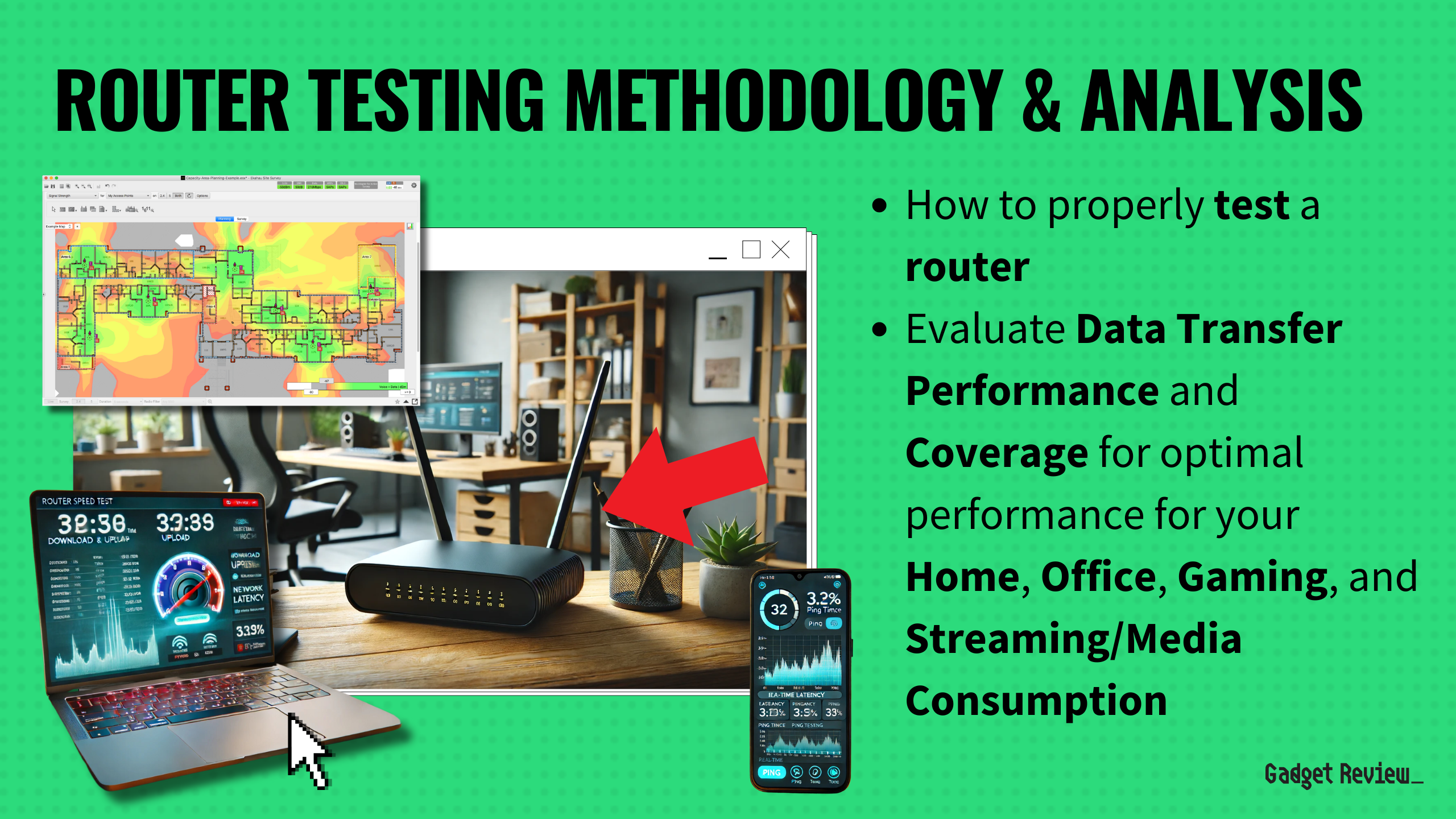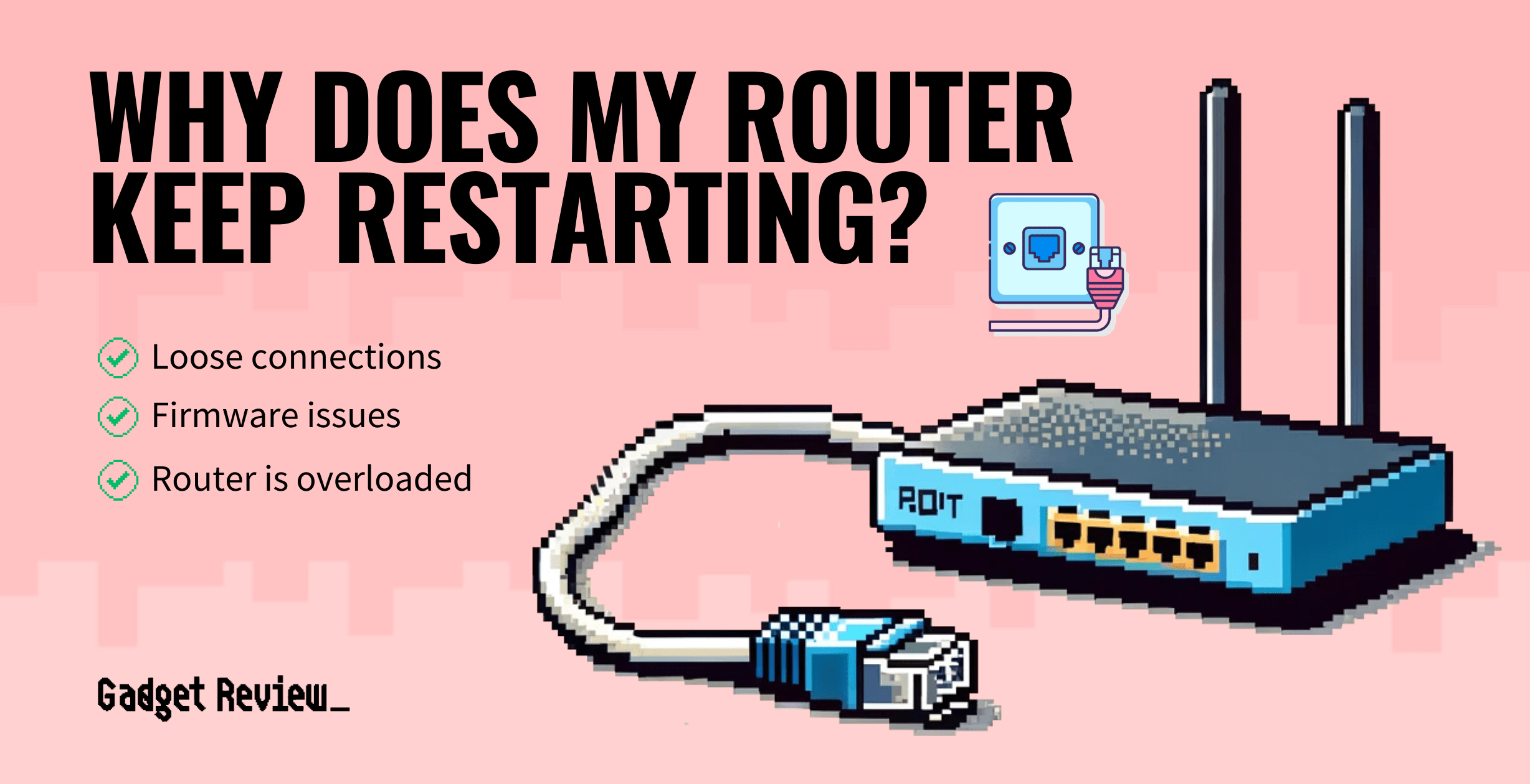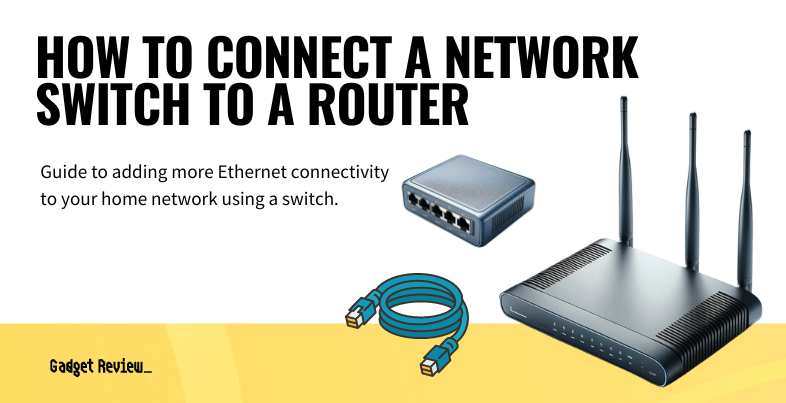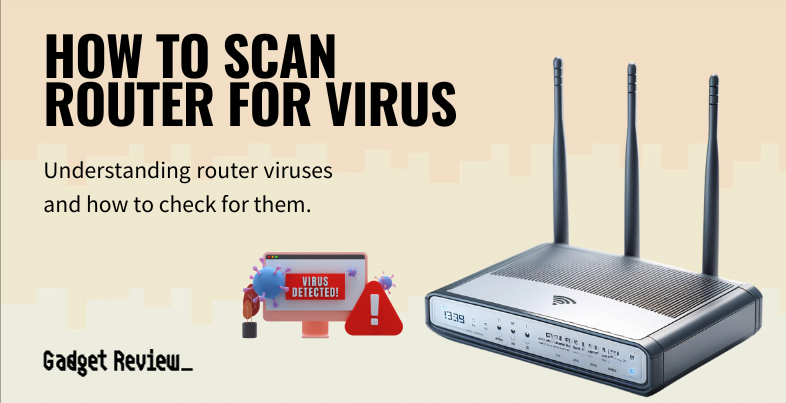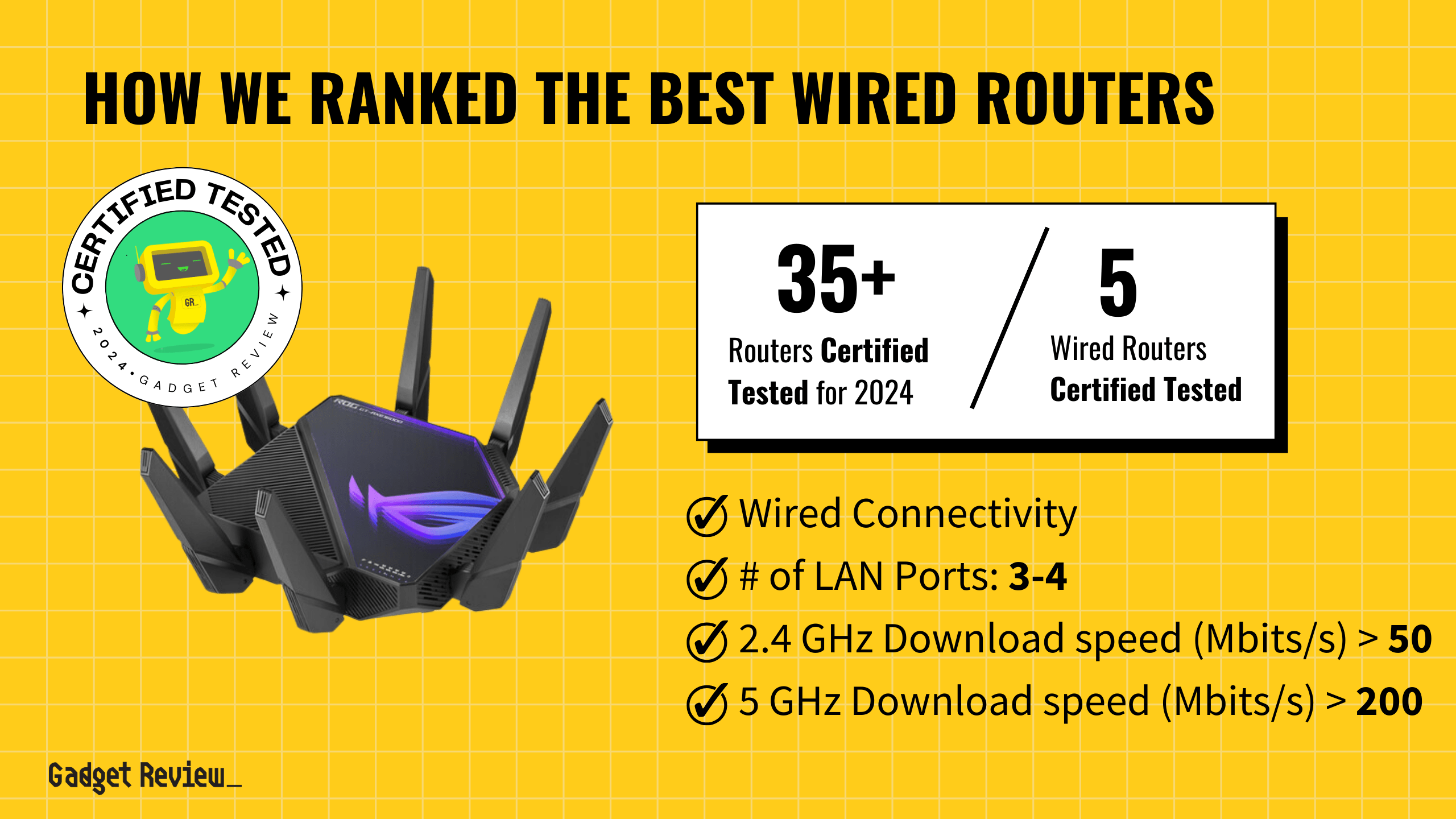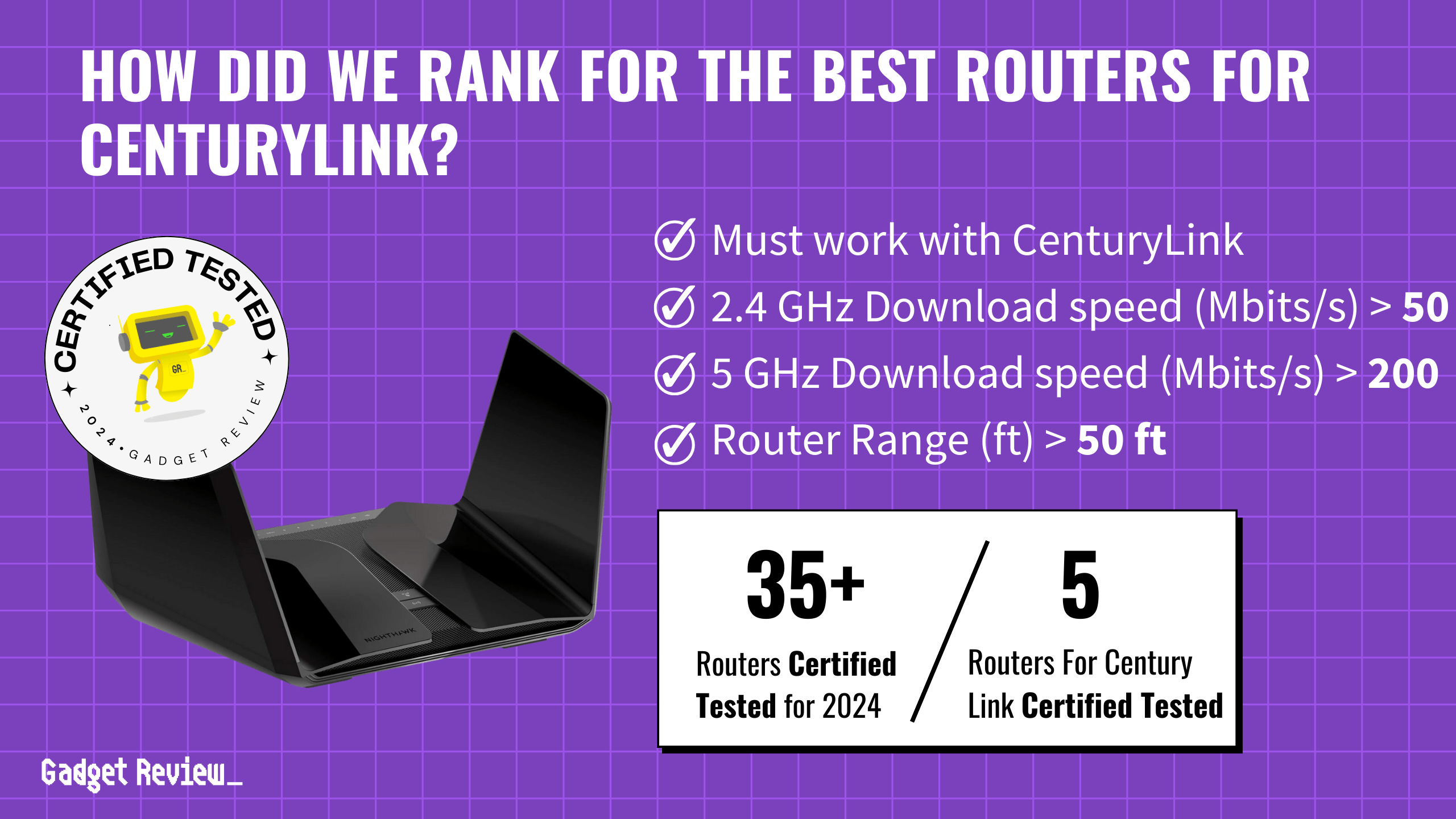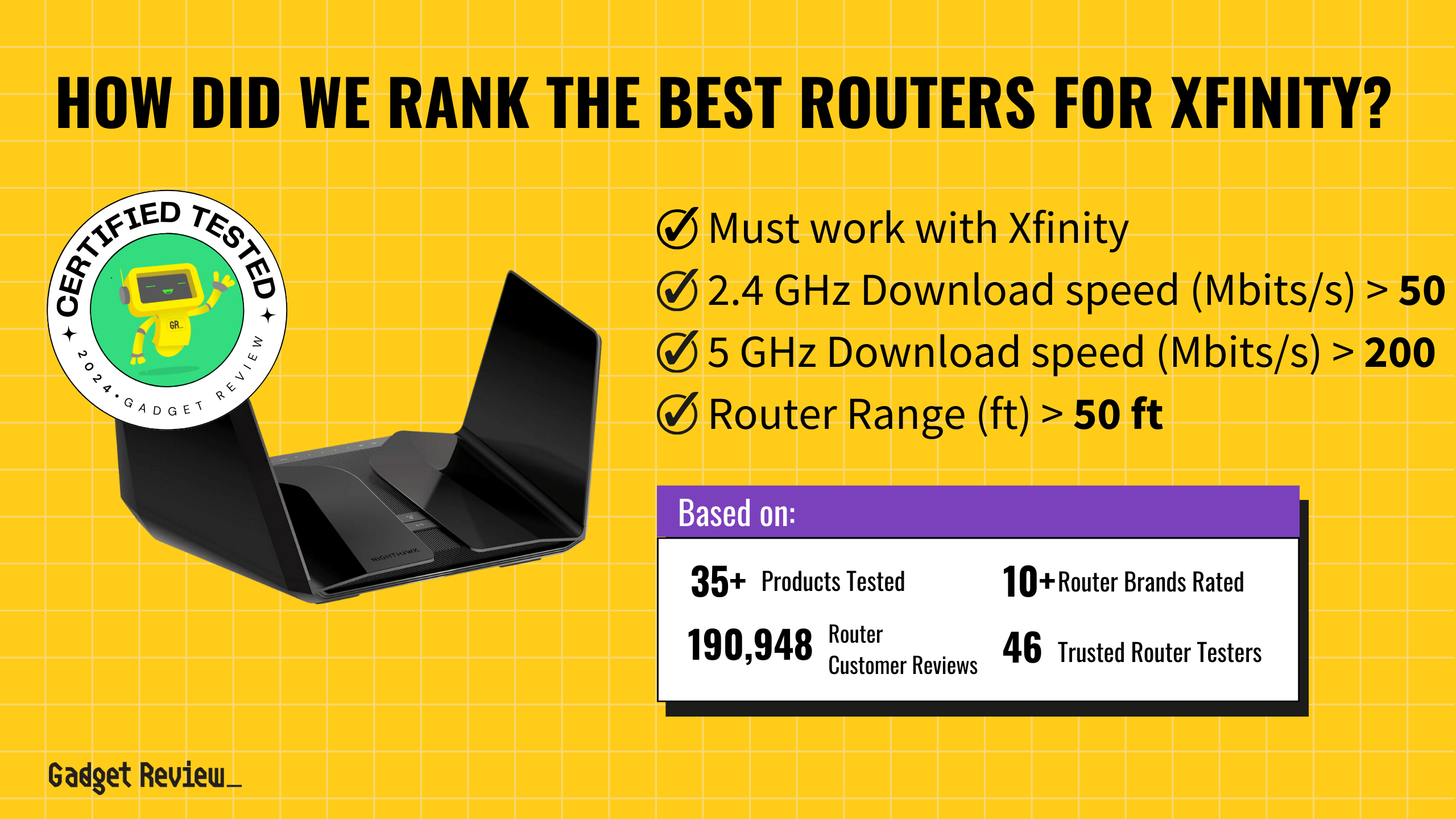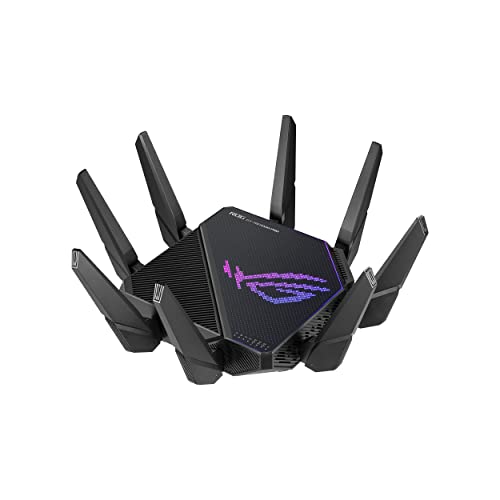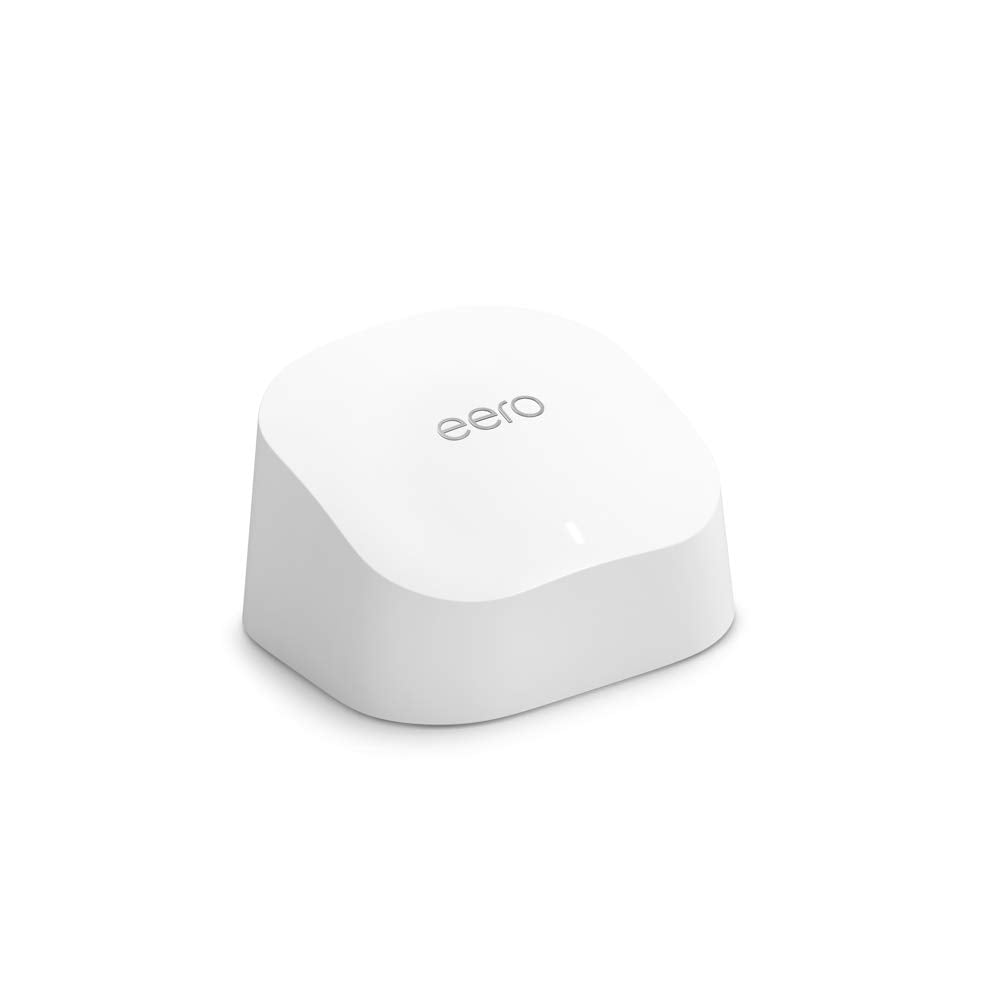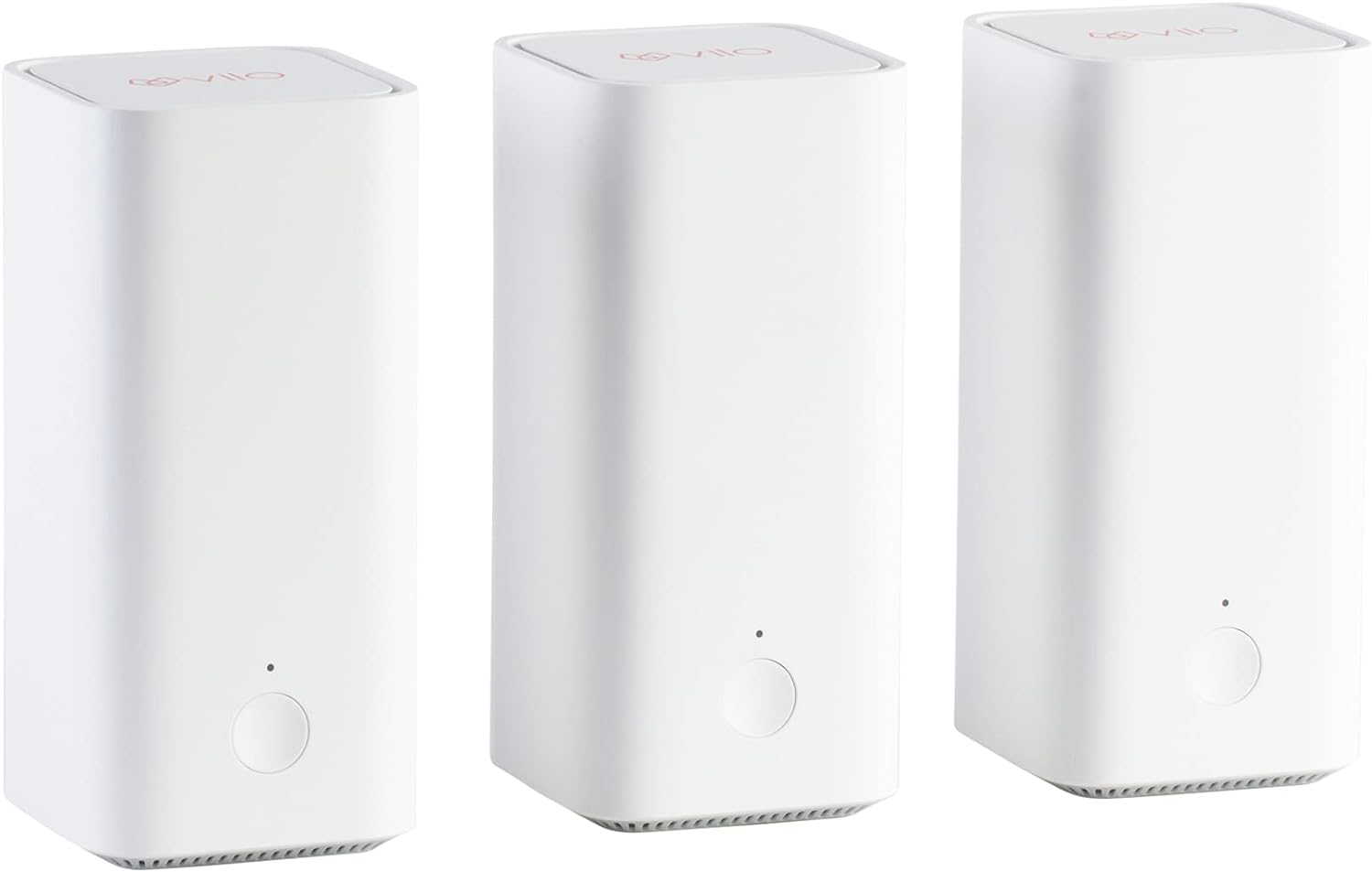Choosing the best router for Cox involves ensuring compatibility with their cable internet service and excelling in speed, range, and reliability. When you’re streaming, gaming, or working remotely, you need a router that supports both 2.4 GHz and 5 GHz bands, with download speeds of at least 50 Mbps and 200 Mbps, respectively. Our comprehensive review evaluated 37 routers and analyzed 193,476 reviews.
Only 5 routers earned a spot on our buying guide from these. We verified products to certify their performance and used our proprietary Trust Rating and True Score system to filter out fake and low-quality reviews. Our top picks demonstrated robust performance, reliable connections, and ease of use, ensuring they meet your high-demand needs for activities like streaming, gaming, and remote work.
How Did We Rank the Best Routers for Cox?
To determine the best routers for Cox, we meticulously analyzed over 200 sites, diving deep into testing methodologies and customer feedback. Our True Score system highlights the critical pain points users face. We focused on 2 required test results, 2 nice-to-have test results, and 1 must-have specification. By evaluating expert reviews and understanding what matters most to Cox users, we’ve distilled the essential criteria that make a router truly stand out.
Our commitment to unbiased reviews is powered by our ‘True Score’ system, targeting low quality and fake reviews. When you shop through our links, you’re backing our mission. Dive deeper to see how.
Minimum Specifications
- Must work with Cox
Test Criteria
- 2.4 GHz Download Speed: A download speed on the 2.4 GHz band of at least 50 Mbits.
- 5 GHz Download Speed: A download speed on the 5 GHz band of at least 200 Mbits.
? “Nice To Haves”
- Router Range: A range of at least 50 feet before the signal from the router begins to become noticeably weaker.
- Latency: A latency of 30 ms or less.
Latest Updates
- 06/19/2024: Republished the list to include the best routers for Cox based on our True Score system.
Top Routers for Cox For 2026
Prices accurate at the time of publishing

Best Overall

Runner Up

Best Value

Best Budget

Best Mid-Range

Premium Pick
Netgear Nighthawk RAXE300
Best For Cox
Ideal for Cox users in large spaces, the Netgear Nighthawk RAXE300 excels for gamers and streamers with its high-speed capabilities and wide range.
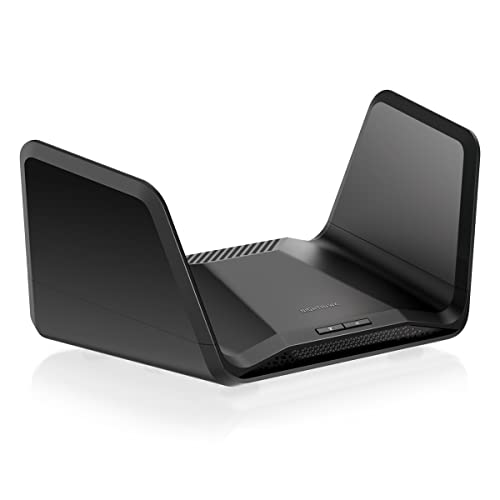
True Score
82829Experts
903kCustomers
Absolutely Fresh
 SAVE $243$399.00$155.60
SAVE $243$399.00$155.60Read More
Snapshot
Reasons to Buy
- Superb Wi-Fi speeds
- Wide range
- Simple setup
Reasons to Avoid
- Limited range (6GHz)
- No USB A port
- Subscription-based security solutions
Specifications

# of LAN Ports 6 
Frequency Bands 2.4 GHz, 5.0 GHz, 6.0 GHz 
MU-MIMO Support Yes 
Wireless Standard AC, AX, N 
Mesh System No 
Quality of Service Prioritization No 
# of Phone Ports 1 
# of WAN Ports 1 
App Compatible Yes 
Available Storage 256MB 
Band Technology Tri 
Data Encryption Type WPA-PSK, WPA2-PSK, WPA3 
Energy Star Certified No 
Integrated Modem No 
LAN Port Speed 4 Gb Ethernet 
Number of Antennas 6 
Parental Controls Yes 
Processor Cores Quad 
Processor Speed 1.7GHz 
WiFi Range 2500 sq.ft 
WiFi Speed 7.8 Gb 
Wired Speed 1000 Mb All Specs
Test Results
2.4 GHz Download speed (Mbits/s) 222 5 GHz Download speed (Mbits/s) 852 6 Ghz Download speed (Mbits/s) 757 Latency (ms) 5 Router Range (ft) 170 2.4 GHz Upload speed (Mbits/s) 0 5 GHz Upload speed (Mbits/s) 175 6 Ghz Upload speed (Mbits/s) 247 All Tests
All Retailers
- $155.60$399Save $243
- $164.99$300Save $135
- $299.99
Our Verdict
Cox internet users looking for a router that can handle high-speed demands in a large space should consider the Netgear Nighthawk RAXE300. Its 2.4 GHz download speeds reach a best-in-class 221.65 Mbits/s, and it impresses with 5 GHz at 851.6 Mbits/s plus 6 GHz speeds of 756.8 Mbits/s. This ensures your connection is seamless during competitive gaming and 4K streaming. Moreover, its upload speeds are remarkable, hitting 175 Mbits/s on the 5 GHz band and 247.2 Mbits/s on the 6 GHz band, facilitating quick uploads for high-definition video calls, online gaming, and efficient cloud computing. If you require uninterrupted gaming or streaming, the router has a best-in-class latency of 5 ms and delivers a superior range of 170 ft, paving the way for seamless online activities across your large space.
Compared to the Eero Max 7, both have fantastic latencies and 6GHz band performance. The Eero Max 7 is a mesh system with superior 6GHz speeds that are ideal for 4K streaming and gaming, but one unit alone is very expensive. The RAXE300 is a more cost-effective router with a great range as a single unit. The Eero alone has a shorter range, but being a mesh system, you can add more units to expand its coverage and beat the RAXE300’s, though doing so will be a hefty investment.
The Nighthawk RAXE300’s exceptional speeds across all bands, low latency, and broad coverage make it an ideal selection for serious gamers, streamers, and professionals. The price is a drawback, and it’s not the fastest on the 6 GHz band, but its overall reliability ensures that it’s a top-tier, comprehensive router solution worth the price.
Read Less

Best Overall

Runner Up

Best Value

Best Budget

Best Mid-Range

Premium Pick
Asus RT-AX86S
Best For Gaming
Ideal for Cox users with large homes on a budget, the Asus RT-AX86S offers great 5 GHz speed, wide coverage, and low latency, perfect for gaming and streaming.
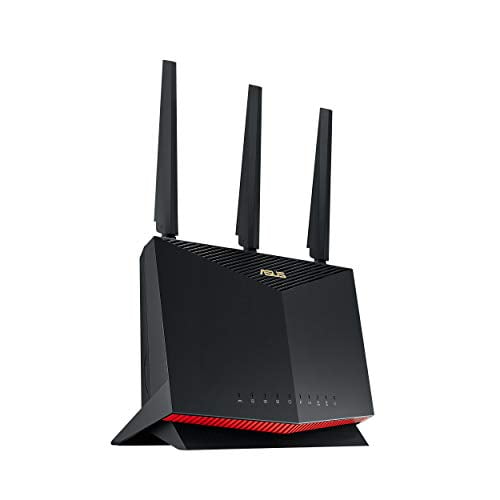
True Score
82823Experts
891kCustomers
Absolutely Fresh
 SAVE $23$225.00$202.24
SAVE $23$225.00$202.24Read More
Snapshot
Reasons to Buy
- Fast WiFi and download speeds
- Incredible range of coverage
- Easy installation and set up
- Low Latency
Reasons to Avoid
- Lacks Backhaul and Mesh Networking
Specifications

# of LAN Ports 4 
Frequency Bands 2.4 GHz, 5.0 GHz 
MU-MIMO Support Yes 
Wireless Standard AC, AX, N 
Mesh System No 
Quality of Service Prioritization Yes 
# of Phone Ports n/a 
# of WAN Ports 1 
App Compatible Yes 
Available Storage 256MB 
Band Technology Dual 
Data Encryption Type WPA, WPA-Enterprise, WPA2, WPA2-Enterprise, WPA3, WPA3-Enterprise, WPS 
Energy Star Certified No 
Integrated Modem No 
LAN Port Speed 4 Gb Ethernet 
Number of Antennas 4 
Parental Controls Yes 
Processor Cores Dual 
Processor Speed 1.8GHz 
WiFi Range 5400 sq. ft 
WiFi Speed 5.7 Gb 
Wired Speed – All Specs
Test Results
2.4 GHz Download speed (Mbits/s) 89 5 GHz Download speed (Mbits/s) 563 6 Ghz Download speed (Mbits/s) 0 Latency (ms) 15 Router Range (ft) 140 2.4 GHz Upload speed (Mbits/s) 0 5 GHz Upload speed (Mbits/s) 23 6 Ghz Upload speed (Mbits/s) 0 All Tests
All Retailers
- $202.24$225Save $23
Our Verdict
If you’re on a budget and your Cox internet setup needs a router that can cover a large home or business, the Asus RT-AX86S is a superb option. If you live or work in medium to large spaces, the Asus RT-AX86S delivers a range of up to 140 ft and a 15 ms latency, promising broad and responsive coverage perfect for lag-sensitive applications like online gaming and video calls.
It offers impressive 5 GHz download speeds up to 563 Mbits/s and upload speeds reaching 23 Mbits/s, making it well-suited for bandwidth-intensive tasks. Even though it lacks a 6 GHz band, its 5 GHz capabilities are robust enough to support streaming and gaming, ensuring it meets the needs of demanding users at an attractive price point. It also ensures reliable downloads with a 2.4 GHz upload speed of 89.00 Mbits/s, smoothly accommodating a wide array of general online activities.
Compared to the Netgear Nighthawk RAXE300, both have large ranges suitable for big spaces. The RAXE300 has less latency to ensure minimal delays, and it’s faster in general across all bands, making it the better choice if you need a powerful router to handle intense online activities. On the other hand, the RT-AX86S is still an efficient router if you have a limited budget.
For Cox customers searching for an economical yet reliable router for a large space, the Asus RT-AX86S’s standout 5 GHz speed and extensive Wi-Fi coverage make it a great value. While its 2.4 GHz output might not break records, it remains adept for your online gaming, streaming, and connecting smart home devices in a large home or small office.
Read Less
Did you know 64% of router reviewers are untrustworthy?
Our research found only 46 of 127 router reviewers as of February 2026 can be trusted. This is why Gadget Review is committed to calculating the most accurate product scores on the web.
To do this, we give every router review site a Trust Rating, which measures how trustworthy the site and their testing claims are. We then leverage AI & a machine learning model to combine and calculate the Trust Rating with data from experts and consumers to deliver the True Score, the web’s most accurate product quality rating.
 193,476
193,476Router Reviews Analyzed

37
Total Products Analyzed

Best Overall

Runner Up

Best Value

Best Budget

Best Mid-Range

Premium Pick
Asus ROG GT6 Mesh
Best For Small Business
Ideal for content creators with Cox Internet, the Asus ROG GT6 Mesh excels in smooth online activities and fast uploads, perfect for 4K streaming and gaming.

True Score
80826Experts
864kCustomers
Absolutely Fresh
 SAVE $70$349.99$279.99
SAVE $70$349.99$279.99Read More
Snapshot
Reasons to Buy
- Fast Download/Upload Speed
- Easy to install and operate
Reasons to Avoid
- WiFi speed drops off at long range
- Connection range is limited
- Limited USB Connectivity
- Mediocre Latency
Specifications

# of LAN Ports 3 
Frequency Bands 2.4 GHz, 5.0 GHz 
MU-MIMO Support Yes 
Wireless Standard AC, AX, N 
Mesh System Yes 
Quality of Service Prioritization Yes 
# of Phone Ports n/a 
# of WAN Ports 1 
App Compatible Yes 
Available Storage 256MB 
Band Technology Tri 
Data Encryption Type WEP, WPA-Enterprise, WPA-PSK, WPA2-Enterprise, WPA3-Personal 
Energy Star Certified No 
Integrated Modem No 
LAN Port Speed 3 Gb Ethernet 
Number of Antennas 9 
Parental Controls Yes 
Processor Cores Triple 
Processor Speed 1.7GHz 
WiFi Range 5800 sq. ft 
WiFi Speed 2.6 Gb 
Wired Speed 2500 Mb All Specs
Test Results
2.4 GHz Download speed (Mbits/s) 139 5 GHz Download speed (Mbits/s) 701 6 Ghz Download speed (Mbits/s) 0 Latency (ms) 22 Router Range (ft) 95 2.4 GHz Upload speed (Mbits/s) 112 5 GHz Upload speed (Mbits/s) 619 6 Ghz Upload speed (Mbits/s) 0 All Tests
All Retailers
- $279.99$350Save $70
- $331.99$350Save $18
Our Verdict
If you’re a content creator or professional and need a smooth online experience, the Asus ROG GT6 Mesh is an excellent option thanks to its remarkable upload speeds. It boasts tri-band technology, making it suitable for bandwidth-intensive tasks such as 4K streaming and online gaming, with upload speeds of 618.5 Mbits/s on the 5 GHz band and 111.9 Mbits/s on the 2.4 GHz band that can handle fast file uploads like cloud storage backups and video content creation. Its download speeds also impress, reaching 701.3 Mbits/s on the 5 GHz band and 139.35 Mbits/s on the 2.4 GHz band, providing steady connectivity for everyday internet needs and smart home integrations.
If you live or work in a medium-sized space, this router’s 95 ft range guarantees extensive Wi-Fi coverage, making lag and buffering issues obsolete. With a latency of 22 ms, it offers a solid and swift experience for virtually all online activities. Compared to the Asus RT-AX86S, both have similar latencies, but the AX86S has a higher range and cheaper price, making it suitable for large homeowners and small business owners on a budget. If you need mesh networking to reduce Wi-Fi dead zones plus faster speeds to support activities like content creation, the ROG GT6 is the superior choice.
The ROG GT6 Mesh stands out for its robust uploading capabilities and support to medium-sized spaces. Despite its higher price and slightly higher latency, it’s a solid investment if you’re a competitive gamer, content creator, or professional requiring frequent large file uploads in expansive living or working areas.
Read Less

DON’T SEE WHAT YOU’RE LOOKING FOR?
When choosing a router for Google Fiber or exploring Xfinity routers, it’s essential to understand different modes like bridge mode vs router mode to optimize your network setup. If you require a stable and fast connection for gaming or streaming, consider investing in the best wired router for reliable performance.
Additionally, knowing how to check data usage on a WiFi router helps you monitor your internet consumption and avoid overage fees. For gamers and streamers, learning how to prioritize my PC on a router ensures smoother performance and reduced lag by prioritizing traffic to your most important device.

Best Overall

Runner Up

Best Value

Best Budget

Best Mid-Range

Premium Pick
Eero Max 7
Best For Mesh
For Cox internet users needing top speeds, the Eero Max 7 excels with its superior 6 GHz band for seamless streaming and gaming.
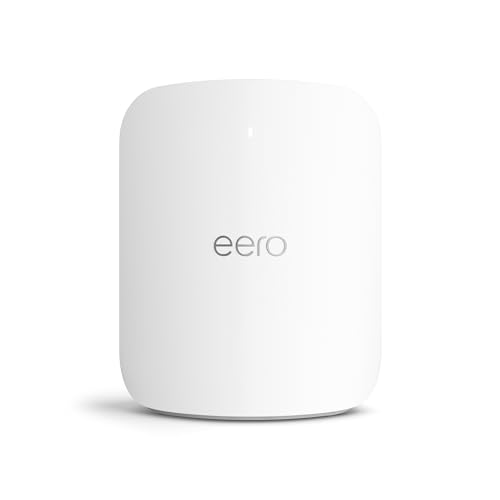
True Score
80807Experts
871kCustomers
Absolutely Fresh
 $599.99
$599.99Read More
Snapshot
Reasons to Buy
- Exceptional Download WiFi Speed
- Easy Installation and Configuration
- Low Latency
Reasons to Avoid
- Poor 2.4 GHz Upload Speeds
- Short Range of Coverage
- Limited Port Space
Specifications

# of LAN Ports 4 
Frequency Bands 2.4 GHz, 5.0 GHz, 6.0 GHz 
MU-MIMO Support Yes 
Wireless Standard BE 
Mesh System Yes 
Quality of Service Prioritization No 
# of Phone Ports n/a 
# of WAN Ports 1 
App Compatible Yes 
Available Storage 4000MB 
Band Technology Tri 
Data Encryption Type WPA2-Personal, WPA3-Personal 
Energy Star Certified No 
Integrated Modem No 
LAN Port Speed 2 Gb Ethernet 
Number of Antennas 10 
Parental Controls Yes 
Processor Cores Quad 
Processor Speed – 
WiFi Range 2500 sq.ft 
WiFi Speed 4.3 Gb 
Wired Speed 10000 Mb All Specs
Test Results
2.4 GHz Download speed (Mbits/s) 96 5 GHz Download speed (Mbits/s) 1,078 6 Ghz Download speed (Mbits/s) 1,223 Latency (ms) 7 Router Range (ft) 90 2.4 GHz Upload speed (Mbits/s) 75 5 GHz Upload speed (Mbits/s) 411 6 Ghz Upload speed (Mbits/s) 638 All Tests
All Retailers
- $599.99
- $599.99
Our Verdict
Cox internet users needing the fastest router with the most advanced band should take note of the Eero Max 7 and its superior 6 GHz band performance. It boasts download and upload speeds of 1222.5 Mbits/s and 638 Mbits/s, respectively, making it suitable for 4K/8K streaming, online gaming, and managing multiple smart home devices. It leverages tri-band technology to deliver on the 6 GHz band and offers impressive 5 GHz performance with 1078.5 Mbits/s download and 410.6 Mbits/s upload speeds, ensuring robust connectivity for various applications without interference. Its 2.4 GHz band provides solid speeds, too, with 95.9 Mbits/s download and 74.8 Mbits/s upload, guaranteeing reliable internet for everyday use.
With a mere 7 ms latency, the Eero Max 7 ensures quick response times for lag-free gaming experiences and smooth video conferencing. Its coverage reaches up to 90 ft, making it suitable for small—to medium-sized homes.
Compared to the Netgear Nighthawk RAXE300, both routers cater well to modern, connected households with 6 GHz capabilities and small latencies. The RAXE300 is cheaper and offers coverage for larger homes and offices, but the Eero Max 7 has a superior 6 GHz speed, ideal for users prioritizing cutting-edge streaming, VR, and device-heavy setups.
Opting for the Eero Max 7 means choosing unparalleled speed in the 6 GHz band—a critical factor if you demand the utmost in ultra-high-definition streaming and intensive internet use. Despite its higher price and limited range, its exceptional performance and mesh networking capabilities justify the investment if you need a seamless, high-capacity online experience throughout your home.
Read Less
Category Snapshot
Routers
- Total Brands/Products Tested
12 Brands, 37 Products
- Top 2 Brands
Netgear, Asus
- Price Range (Budget-Premium)
$45-$600
- Average True Score
79.42
- Important Test Criteria
Download & Upload Speed (bits/second)
Range (feet/meters)
- Most Trusted Testers

- Top Router Experts
- Typical Warranty
1 year
- Covered by Insurance
Yes – AKKO

Best Overall

Runner Up

Best Value

Best Budget

Best Mid-Range

Premium Pick
TP-Link Archer AXE75
Best For Wired
Ideal for small spaces, the TP-Link Archer AXE75 offers solid performance and tri-band technology at great value, perfect for HD streaming and gaming.
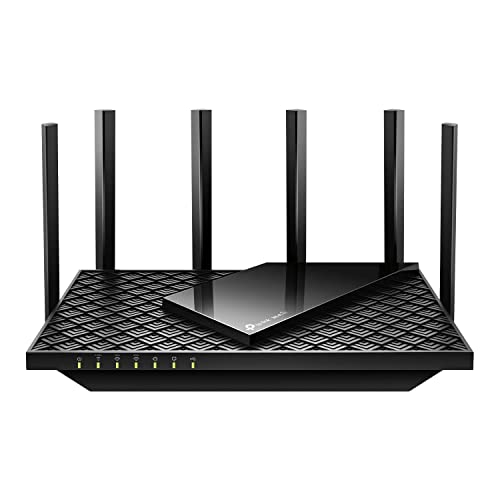
True Score
79804Experts
862kCustomers
Mixed Reviews
 SAVE $67$179.99$112.99
SAVE $67$179.99$112.99Read More
Snapshot
Reasons to Buy
- Good WiFi speeds
- Adequate range
- Simple set up
Reasons to Avoid
- Average download speeds
- Limited coverage
- Subscription-based security solutions
Specifications

# of LAN Ports 4 
Frequency Bands 2.4 GHz, 5.0 GHz, 6.0 GHz 
MU-MIMO Support Yes 
Wireless Standard AC, AX 
Mesh System Yes 
Quality of Service Prioritization Yes 
# of Phone Ports n/a 
# of WAN Ports 1 
App Compatible Yes 
Available Storage n/a 
Band Technology Tri 
Data Encryption Type WPA3 
Energy Star Certified n/a 
Integrated Modem No 
LAN Port Speed Gigabit Ethernet 
Number of Antennas 6 
Parental Controls Yes 
Processor Cores Triple 
Processor Speed 1.7GHz 
WiFi Range 2500 sq.ft 
WiFi Speed 2.4GHz 
Wired Speed 1000 Mb All Specs
Test Results
2.4 GHz Download speed (Mbits/s) 65 5 GHz Download speed (Mbits/s) 309 6 Ghz Download speed (Mbits/s) 318 Latency (ms) 9 Router Range (ft) 60 2.4 GHz Upload speed (Mbits/s) 0 5 GHz Upload speed (Mbits/s) 0 6 Ghz Upload speed (Mbits/s) 0 All Tests
All Retailers
- $112.99$180Save $67
- $126.99$159Save $32
Our Verdict
If your Cox internet demands a router that blends cost-efficiency with solid performance, the TP-Link Archer AXE75 is a great solution. It features tri-band technology, including a 6 GHz download speed of 317.9 Mbits/s, catering to a variety of online needs, such as HD streaming and casual gaming, without straining your wallet.
If you use multiple devices simultaneously in a small apartment or space, the Archer AXE75 ensures seamless connectivity across both 2.4 and 5 GHz bands. It delivers download speeds of 65.05 Mbits/s on the 2.4 GHz band and 309.1 Mbits/s on the 5 GHz band, adeptly supporting everyday tasks like web browsing, email, streaming, and gaming. Although it covers a modest area of 60 ft, its impressive 9 ms latency guarantees swift online engagement.
When weighing the AXE75 against options like the Eero Max 7, both are responsive routers that suit small to medium-sized homes. The Eero boasts a faster 6 GHz performance but at a steeper cost, but the AXE75 is an appealing alternative for high-quality, tri-band mesh networking at a more budget-friendly price.
For Cox internet users who want to balance cost and performance in smaller living spaces, the TP-Link Archer AXE75 is a reliable choice. Though it’s not the fastest and doesn’t have the largest range, its compatibility with mesh systems, commendable speeds, and Wi-Fi 6 technology make it a prime candidate for ensuring robust, adaptable home internet without overspending.
Read Less
Which Criteria Matters for Testing Best Routers for Cox?
By focusing on these criteria (2 required, 2 nice to have), anyone can quickly and easily compare these routers and how they’ll perform. This helps you make an informed decision and purchase a router that will meet your needs.
| CRITERIA | RANGE | REQUIRED | DEFINITION |
|---|---|---|---|
| 2.4 GHz Download Speed | > 50 Mbits/s | Yes | The maximum speed that the router can reach when downloading on the 2.4 GHz band. |
| 5 GHz Download Speed | > 200 Mbits/s | Yes | The maximum speed that the router can reach when downloading on the 5 GHz band. |
| Router Range | > 50 ft | No (Nice to have) | How far a device can be from a router before the signal starts degrading. It is worth noting that 2.4 GHz reaches further than 5 GHz. |
| Latency | < 30 ms | No (Nice to have) | The delay that is created by a signal being sent by the router and then received. |
Our Trusted Data Sources
We looked at 120+ router reviewers and found that 46 are trustworthy (60%+ Trust Rating). The three we have listed below are our most trusted for routers.
- James Morris – Kit Guru, LinkedIn
- Matt Spencer – TechGearLab, LinkedIn
- Brian Nadel – Tom’s Guide, MuckRack
Interested in a comprehensive analysis of our data sources? We’ve got you covered. Below, you’ll find a detailed list of every router review website we’ve identified, organized by their respective Trust Ratings from highest to lowest. But we didn’t stop there. We’ve meticulously reviewed each publication and verified the data by checking whether the authors have bio links to MuckRack or LinkedIn. We’re committed to not only checking the facts but ensuring their veracity.
Router Test Data & Results
Disclaimer:
Evaluating router performance is more than hardware analysis. While hardware tests are straightforward, the challenge lies in contextualizing the results within the limits of real-world usage. Routers operate under conditions that testers cannot fully standardize, including variations in Internet Service Providers (ISPs), network traffic congestion, discrepancies between advertised and actual internet speeds, and the physical layout of homes. These factors introduce a degree of unpredictability, making it hard to draw universal conclusions. As such, our router recommendations aim to provide useful general guidance, accommodating a wide range of home environments and internet setups.
1. 2.4 GHz Download Speed (Mbits/s)
2.4 GHz Download Speed
> 50 Mbits/s
Acceptable range of performance
Definition: The top speed the router reaches downloading on the 2.4 GHz band.
Units of Measurement: Mbits/s (megabits per second)
Tools to Measure: Speed-checking software
Why It’s Important:
For older devices or for connecting at a longer range, the 2.4 GHz frequency is the only one that you’ll be able to use, so it should have usable speed.
The oldest and slowest of the bands on a router is the 2.4 GHz band, but it sticks around for a reason. Generally speaking, while this band features the slowest available speeds and has the lowest bandwidth, but also reaches out the furthest. It’s not the best band to connect to connect if you need high speeds, but if you just need to be connected for light browsing or anything that’s low bandwidth, it works. Alternatively, if you own a lot of old devices, this band may be the only band they can “see” and therefore, use.
Given the age of the band, top speeds on 2.4 GHz cap out very quickly. We recommend a speed of at least 50 Mbits/s, but if you aren’t really going to be using this band for anything other than checking web pages, you can go lower. It’s worth noting, though, that this might lead to a more frustrating and laggier time on modern sites with lots of scripting and high-quality images.
2.4 GHz Download Speed (Mbits/s; higher is better; 0 = No Data)
2. 5 GHz Download Speed (Mbits/s)
The much faster 5 GHz band offers up much greater bandwidth and is much, much better at meeting high-speed demands. Streaming high-quality video, using streaming services, gaming, downloading large files and games – the 5 GHz band is what makes all of these activities quick and bearable. It reaches a lower range than the 2.4 GHz band, but it’s also much faster, so you’ll use it more, especially on newer devices that actually support the band.
Given how much you’ll be using this band, we recommend a speed of at least 200 Mbits/s to ensure you’re able to enjoy streaming and gaming on at least a few devices simultaneously. Any lower and you start to run into real bottleneck concerns, such as endless buffering, lagging, or drops in connection.
5 GHz Download Speed
> 200 Mbits/s
Acceptable range of performance
Definition: The top speed the router reaches downloading on the 5 GHz band.
Units of Measurement: Mbits/s (megabits per second)
Tools to Measure: Speed-checking software
Why It’s Important:
This band is used by most modern devices and offers greater speeds that enable activities like gaming and HD streaming on multiple devices.
5 GHz Download Speed (Mbits/s; higher is better; 0 = No Data)
3. Router Range (ft)
Router range is exactly what the name suggests: how far can you get from the router before you start experiencing issues with your connection? The complicating factor is the simple fact that range depends on the band you’re using. 2.4 GHz is a band that offers greater range, so it gives tests results that show a greater range than tests that use the 5 GHz band. In general, our research found most publications used the 5 GHz band, so our recommendations are based on that.
As such, we recommend your router have a range of at least 50 ft. This gives you a good “bubble” around the router that you can connect to, but it’s important to know that things like the walls in your home can cause issues. Thicker walls block more signal, thinner walls block less. Some materials will also do a better job than others will at stopping signal, so if you see a router with a range of 65 ft, know that it might not reach that far in your home. It could reach further – or not nearly as far. This is also why you get dead zones in your home – it’s a matter of geometry and materials.
Router Range
> 50 ft
Acceptable range of performance
Definition: The distance the router transmits reliable signal out to before performance and speed degrades.
Units of Measurement: Feet (ft)
Tools to Measure: Measuring Tape
Why It’s Important:
Range impacts how far you’ll get a reliable connection in your home, and whether you’ll need extenders or not.
Router Range (ft; higher is better; 0 = No Data)
4. Latency (ms)
Latency
< 30 ms
Acceptable range of performance
Definition: The time it takes for the router to send and then receive signals.
Units of Measurement: Milliseconds (ms)
Tools to Measure: Speed-checking software
Why It’s Important:
Latency is important to reduce delay when gaming and video conferencing.
On a router, latency refers to how long it takes for the router to send out and receive a signal. The longer it takes, the more delay there is between you sending and receiving data, which can introduce lag in video games and also makes video conferencing harder since the person you’re speaking with now has to contend with your delay and vice versa. If you’ve ever spent a call talking over someone because you don’t know they started talking a second ago, that’s latency.
For that reason, we recommend a latency below 30 ms. As low as you can get it is obviously preferable, but latency is another aspect of your internet connection that is hard to manage. Latency differs to every single place you connect to, and every ISP has its own latency they “add” because you have to connect to their service too. Latency creeps in from your ISP, from the site you’re requesting data from, from your router, and from your own onboard Wi-Fi antenna – and that’s just to name a few sources. If you’re gaming, you also have a delay introduced by your connection to game servers and the delay that exists on a hardware level when you input commands.
Latency (ms; lower is better; 0 = No Data)
Best Routers for Cox: Mistakes To Avoid
- Overlooking Speed Requirements: Opt for a router that meets or exceeds your internet speed requirements. Neglecting to consider this factor could lead to slower internet speeds and buffering issues, especially if you have a high-speed Cox plan.
- Neglecting Range and Coverage: Consider the size of your home or office space and choose a router with adequate range and coverage to ensure seamless connectivity throughout the premises. Ignoring this aspect may result in dead zones and unreliable connections in certain areas.
- Ignoring Security Features: Opt for a router with robust security features, such as WPA3 encryption and built-in firewalls, to protect your network from cyber threats and unauthorized access. Neglecting security features could leave your network vulnerable to hacking and privacy breaches.
- Focusing Solely on Price: While budget considerations are important, solely focusing on the price may lead you to compromise on important features and performance. Instead, prioritize value for money by considering factors such as performance, reliability, and features relative to the price.
The Best Routers for Cox Tests Compared
Product |
True Score
|
2.4 GHz D/L Speed
|
5 Ghz D/L Speed
|
6 GHz D/L Speed
|
Range
|
Latency
| |
|---|---|---|---|---|---|---|---|
| 82 |
|
|
|
|
| $155.60 $399 $243 |
| 82 |
|
|
|
|
| $202.24 $225 $23 |
| 80 |
|
|
|
|
| $279.99 $350 $70 |
| 80 |
|
|
|
|
| $599.99 |
| 79 |
|
|
|
|
| $112.99 $180 $67 |








